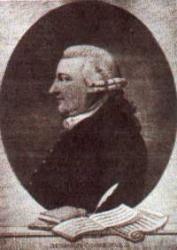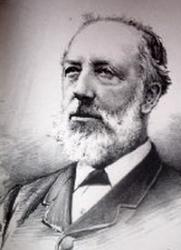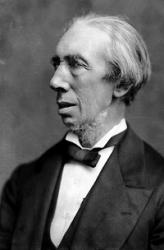Planning worship?
Check out our sister site, ZeteoSearch.org,
for 20+ additional resources related to your search.
- |
User Links
Person Results
Seth Bingham
1882 - 1972 Composer of "[O come let us sing unto the Lord]" in Hymns of the Kingdom of God Seth Daniel Bingham was born in Bloomfield, New Jersey. He received a Bachelor of Arts degree in 1904 from Yale. He then studied organ and composition in Paris from 1906-1907 and returned to Yale and earned a Bachelor of Music degree in 1908. He became organist and choirmaster at Rye Presbyterian Church in New York and also began teaching music at Yale. He taught at Yale for 12 years and then was on the music faculty at Columbia University. He was organist and music director at the Madison Avenue Presbyterian Church in New York City for 35 years. He composed may choral and organ works with a religious theme, as well as secular music for orchestra, chamber groups, and choruses.
Dianne Shapiro from obituary, New York Times, June 22, 1972 (accessed 12/28/2022
Seth Bingham
Edwin George Monk
1819 - 1900 Person Name: E. G. Monk, 1819-1900 Composer of "[O come let us sing unto the Lord]" in The Book of Common Praise
Edwin George Monk
John Randall
1717 - 1799 Person Name: J. Randall Composer of "[O come let us sing unto the Lord] (Randall)" in The Church Hymnal
John Randall
Benjamin Cooke

1734 - 1793 Person Name: Benjamin Cooke, 1734-93 Composer of "[O come let us sing unto the Lord]" in The Book of Common Praise Born: November 28, 1734, London, England.
Died: September 14, 1793, London, England.
Buried: In the west cloister of Westminster Abbey, London, England.
Son of Benjamin Cooke, a Covent Garden music publisher, Cooke studied under Pepusch starting at age 9, and within three years was able to serve as assistant to John Robinson, organist at Westminster Abbey. He succeeded Pepusch as conductor at the Academy of Ancient Music in 1752. At Westminster Abbey, he became master of the choristers 1757, lay vicar in 1758, and organist in 1762. Cooke was educated at Cambridge (MusD 1775) and Oxford (doctorate 1782). He became organist at St. Martin-in-the-Fields in 1782, with his son Robert succeeding him there in 1784. He became assistant director at the Handel Commemoration in 1784, and resigned the conductorship at the Academy of Ancient Music in 1784.
--www.hymntime.com/tch
Benjamin Cooke
Walter Cecil Macfarren

1826 - 1905 Person Name: W. Macfarren Composer of "[O come let us sing unto the Lord]" in Sunday-School Book Walter Cecil Macfarren, b. London, 1826
Evangelical Lutheran Hymnal, 1908
=================
Born: August 28, 1826, Westminster, London, England.
Died: September 2, 1905, at home in St. Pancras, London, England.
Buried: St. Pancras Cemetery, East Finchley, London, England.
Brother of George Macfarren, Walter served as a chorister in Westminster Abbey (1836-41). He entered the Royal Academy of Music in 1842 and was a professor of piano there (1846-1903). He composed pieces for piano, voice and piano, and vocal ensemble, and for many years was a music critic for The Queen.
Sources:
Frost, p. 681
http://www.hymntime.com/tch/bio/m/a/c/macfarren_wc.htm
==================
http://en.wikisource.org/wiki/Macfarren,_Walter_Cecil_%28DNB12%29
Walter Cecil Macfarren
Pelham Humfrey
1647 - 1674 Person Name: Pelham Humphrey Composer of "[O come, let us sing unto the Lord]" in The Hymnal, Revised and Enlarged, as adopted by the General Convention of the Protestant Episcopal Church in the United States of America in the year of our Lord 1892
Pelham Humfrey
T. Tertius Noble

1867 - 1953 Person Name: Thomas Tertius Noble, 1867-1953 Composer of "[Come, let us sing to the Lord]" in The Hymnal 1982 Thomas Tertius Nobel (1867-1953) was born in Bath, England, educated at the Royal College of Music, and was a noted composer and organist. He served as a church organist in Cambridge and Colchester. He moved to Ely Cathedral in 1892 as organist and choirmaster, and in 1898 to York Minster, where he founded the York Symphony Orchestra, directed the York Musical Society, conducted the York Pageant, and revived the York Musical Festival after a lapse of 75 years. He became an honorary fellow of the Royal College of Organists in 1905. In 1913, he moved to New York City, where he was organist at St. Thomas’ Episcopal Church, and established its choir school and a boys’ choir. In addition to composing, he wrote about music education, and helped edit the 1916 Protestant Episcopal hymnal, and served on the music committee that prepared its 1940 successor. He wrote a wide range of music, but only his services, anthems and hymn tunes are still performed regularly. Died: May 4, 1953, Rockport, Massachusetts.
http://www.hymntime.com/tch/
T. Tertius Noble
George A. Macfarren

1813 - 1887 Person Name: George A. MacFarren, 1813-1887 Composer of "[Come, let us sing to the Lord]" in The Hymnal 1982 George Alexander Macfarren, Mus. Doc.; b. London, 1813; d. London, 1887
Evangelical Lutheran Hymnal, 1908
=======================
Born: March 2, 1813, Westminster, England.
Died: October 31, 1887, St. Marylebone, England.
Buried: Hampstead Cemetery, London, England.
Brother of Walter Macfarren, George was a principal of the Royal Academy of Music; professor at Cambridge University; conductor at Covent Garden, London; program note writer for the Philharmonic Society; and editor of Handel and Purcell. He wrote 18 operas, 13 oratorios and cantatas, 9 symphonies, and 162 songs. He went blind in 1860, and was knighted in 1883.
Sources:
Frost, p. 681
Lightwood, p. 189
Nutter, p. 460
http://www.hymntime.com/tch/bio/m/a/c/macfarren_ga.htm
===============================
http://en.wikipedia.org/wiki/George_Alexander_Macfarren
George A. Macfarren
Richard Hillert

1923 - 2010 Person Name: Richard W. Hillert, b. 1923 Composer of "[Come, let us sing to the Lord]" in Lutheran Book of Worship Richard Hillert was born in Granton, Clark County, Wis., on March 14, 1923. There he attended parochial and public schools and later enrolled at Concordia Teachers College (now Concordia University Chicago), River Forest, where he received the Bachelor of Science degree in Education. He served as teacher and music director for parishes in St. Louis, Mo., Wausau, Wis., and Chicago and Westchester, Ill. He received both the Master of Music and the Doctor of Music degrees in composition from Northwestern University, Evanston, Ill. His teachers included Matthew Nathaniel Lundquist, Anthony Donato, Alan Stout, Arrand Parsons, Emil Nolte, and John Ohl. He studied composition with the Italian composer, Goffredo Petrassi, at Aaron Copland’s Berkshire Music Center, Tanglewood, Mass.
Richard Hillert was a noted Lutheran composer. He was Distinguished Professor of Music Emeritus at Concordia University Chicago, River Forest, Ill. He was best known for his work as a composer and teacher of composition. Among his most frequently performed liturgical works for congregation is Worthy Is Christ, with its antiphon, “This is the Feast of Victory” which was written as an alternate Song of Praise for inclusion in Setting One of the Holy Communion in Lutheran Book of Worship (1978) and Lutheran Worship (1982). "This is the Feast" is now widely published in more than 20 recent worship books of many denominations, most recently in Lutheran Service Book (2006) and Evangelical Lutheran Worship (2006). Other major liturgical works include a setting of Evening Prayer (1984) and a Eucharistic Festival Liturgy (1983), which was first performed at Holy Name Cathedral in Chicago. He wrote liturgical pieces and hymns and served as music editor for Worship Supplement(1969) and Lutheran Book of Worship (1978). His compositions and publications include an array of pieces of liturgical music for congregation, choral motets, hymns and hymn anthems, psalm settings and organ works, concertatos, and cantatas, including settings of The Christmas Story According to Saint Luke and The Passion According to Saint John. He edited eleven volumes of the Concordia Hymn Prelude Series.
Hillert's career as Professor of Music at Concordia (now Concordia University Chicago) spanned four decades, from 1959 to 1993. During this time he taught classes in music theory and composition, music literature, 20th century music, orchestration, keyboard instruction, comparative arts and liturgical worship. He served in various capacities in the music department, as chair in 1964-65 and from 1986–89, as coordinator of the Master of Church Music program, and as associate editor of the journal Church Music (1966–80).
Non-liturgical compositions include symphonic works for orchestra (Symphony in Three Movements, Variations for Orchestra, Suite for Strings), chamber works for small orchestra and ensembles (Alternations for Seven Instruments, Divertimento I and II) as well as many works for keyboard, instrumental solos and songs. The latter include Sonata for Piano (1961), a violin sonata, and two sonatas for flute and keyboard. Major organ works include Prelude and Toccata, Ricercata, Passacaglia on Innocent Sounds, Partita on Picardy, and Partita on Atkinson. There are also concert works with sacred texts, such as Five Canticles from the Exodus (1958), Te Deum for two pianos, percussion, and wind instruments (1962), The Alleluiatic Sequence (1980), and Seven Psalms of Grace for baritone solo and chamber orchestra (1998). Extended choral works, many written for Concordia’s Kapelle conducted by Thomas Gieschen, include the Cantata: "May God Bestow on Us His Grace" (1964), "Motet for the Day of Pentecost" for choir, vibraphone, and prepared electronic tape (written for the round-the-world tour in 1969), "Motet for the Time of Easter" for double choir, percussion, and harp (1971), and "Agnus Dei" for three choirs and percussion instruments (1974).
Richard Hillert authored numerous scholarly articles and reviews for the periodicals such as Church Music, CrossAccent, and Currents in Theology and Mission, and other professional books and journals. He received an honorary Doctor of Sacred Music degree from Valparaiso University, and honorary Doctor of Letters degrees from Concordia University at Seward, Nebraska, and Concordia Seminary, St. Louis. He was an honorary life member of the Association of Lutheran Church Musicians. His former students throughout the land have careers as practicing church musicians, elementary and secondary school teachers, teachers in higher education, music editors and publishers, and composers.
Richard Hillert was married to Gloria Bonnin Hillert. They had three children: Kathryn Brewer, Virginia and Jonathan Hillert.
--en.wikipedia.org
Richard Hillert
Daniel Hathaway
b. 1945 Composer of "[O come, let us sing to God]" in The New Century Hymnal
Daniel Hathaway


 My Starred Hymns
My Starred Hymns


